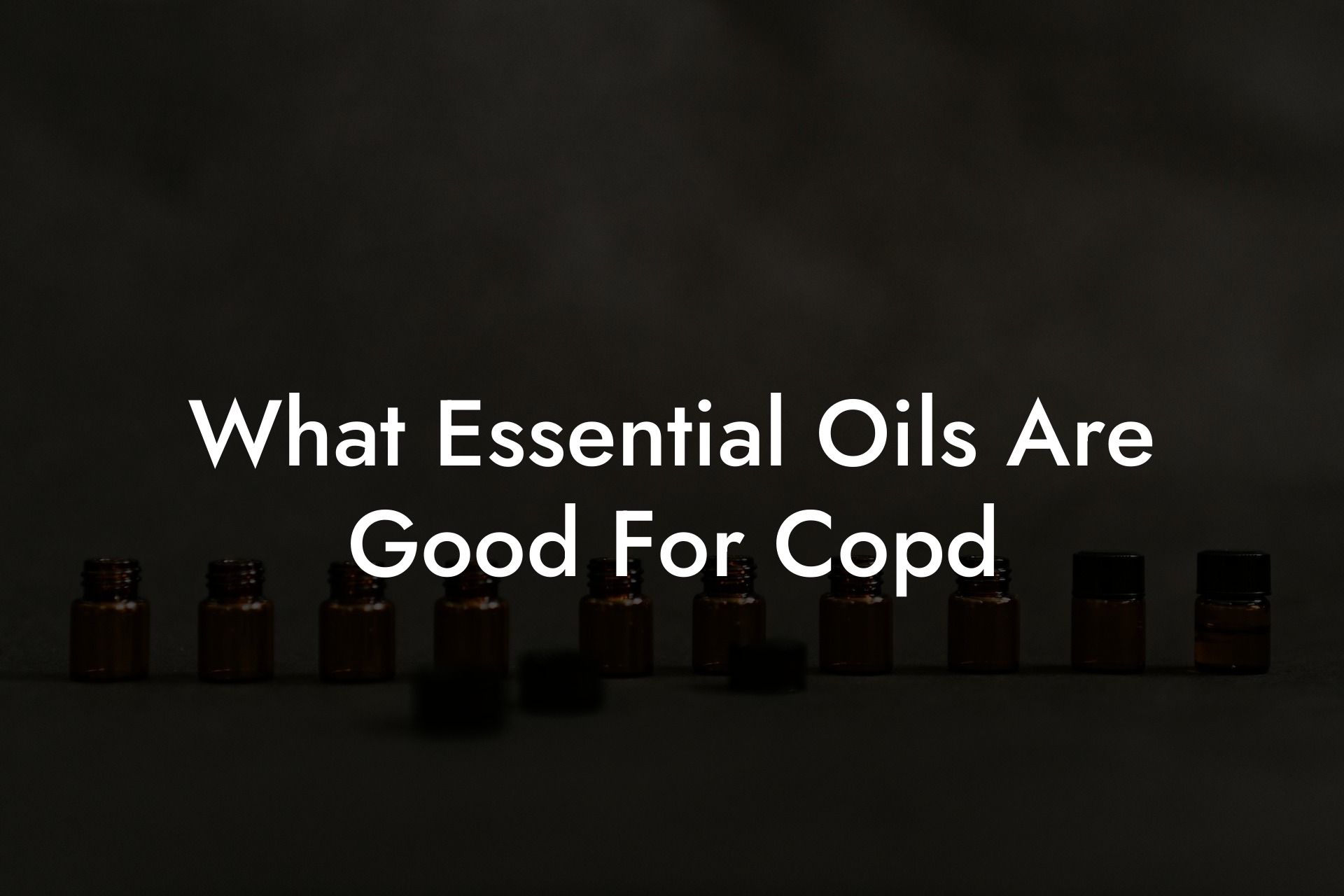Living with Chronic Obstructive Pulmonary Disease (COPD) can be an ongoing struggle, but did you know that essential oils can play a role in alleviating some of the symptoms and improving your quality of life? This article will explore the benefits of essential oils for COPD, as well as discussing the science behind them and showcasing some realistic examples of how to incorporate these natural remedies into your daily routine.
Table of Contents
Understanding COPD
COPD is a progressive lung disease marked by inflammation and damage to the airways, compromising the ability to take in sufficient oxygen. Main symptoms include shortness of breath, frequent cough, and mucus production. While medications and lifestyle changes can help manage the condition, many are turning to alternative therapies like essential oils to find relief.
How Essential Oils Can Help
Essential oils are concentrated blends of natural plant compounds that can be inhaled, applied topically, or used in aromatherapy practices. They possess anti-inflammatory, decongestant, and expectorant properties, which can help alleviate some of the symptoms associated with COPD. It is always important to consult with a healthcare professional before using essential oils for COPD or any other health condition.
Anti-Inflammatory Benefits
Chronic inflammation is a primary component of COPD. Some essential oils have been found to possess anti-inflammatory properties, which may help reduce swelling, inflammation, and pain in the airways.
Decongestant and Expectorant Effects
COPD often comes with excessive mucus production, leading to congestion and difficulty breathing. Essential oils can act as decongestants and expectorants, loosening mucus and making it easier to cough up.
Best Essential Oils for COPD
While there are numerous essential oils available, here are some of the most commonly used and studied for COPD:
- Eucalyptus: Known for its powerful decongestant properties, eucalyptus oil helps clear mucus and promotes easier breathing. Its anti-inflammatory effects can also provide relief from airway swelling.
- Lavender: This calming oil has analgesic and anti-inflammatory properties, helping to relieve pain and inflammation. Additionally, lavender has been shown to promote relaxation and help with sleep, which can be beneficial for COPD patients who struggle with nighttime breathing difficulties.
- Peppermint: An invigorating oil that can aid in opening up airways, peppermint oil contains menthol, which provides a cooling and soothing sensation, helping to ease breathing.
- Rosemary: This stimulating oil can improve respiratory function thanks to its anti-inflammatory, expectorant, and decongestant properties, making it great for COPD sufferers.
- Frankincense: With anti-inflammatory and expectorant properties, frankincense can be helpful in reducing airway inflammation and breaking up mucus.
What Essential Oils Are Good For Copd Example:
For a simple and effective way to incorporate essential oils for COPD relief, you can create a custom essential oil blend for use in a diffuser or as an inhaler:
- Start with a base of two drops of eucalyptus oil and two drops of lavender oil, as these work well together for respiratory support.
- Next, choose one or two additional oils from the list above (rosemary, peppermint, frankincense) and add one drop of each to your blend.
- Fill a small amber glass bottle with your blend and mix well.
- Use this blend in a diffuser, adding a few drops to the water and allowing the aroma to fill your space, or create an inhaler with a few drops of the blend on a cotton wick inside a small glass or aluminum inhaler.
- Inhale the soothing vapors as needed to help alleviate symptoms.
Always consult with your healthcare provider before starting any new treatment, especially if you are currently taking medications or have any pre-existing medical conditions.
By understanding the benefits of essential oils for COPD and incorporating them into your routine, you can potentially find relief from your symptoms and improve your overall wellbeing. Remember to always consult with a healthcare professional before starting any new treatment. If you’ve found this guide helpful, we encourage you to share it with others who might benefit from this knowledge. Explore other essential oil guides on Oshu Oils and discover our range of essential oils to find the perfect blend for your needs.





















